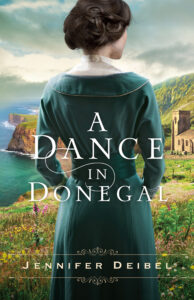
Photo by K. Mitch Hodge on Unsplash
So, you want to write a novel that incorporates an indigenous character, is set in a foreign country, or includes characters from various cultures. Congrats! You’re writing one of my favorite kinds of books to read—and write!
I write books set in the Gaelic speaking areas of Ireland, so I include a sprinkling of the Irish language and accent throughout them. And one of the most common questions I get asked is, “How did you know how much accent or foreign words to include?”
The short answer is, I didn’t. I honestly just wrote the story that was in my heart. But then, once it was on the page, I went back and looked at it more closely, and I had to make some changes. I learned a lot in the process, and I wanted to share some of those things with you.
So, when writing a story that incorporates a foreign language and/or accent, here are some things to keep in mind:
- There are as many opinions on this subject as there are people. An author I highly respect and admire has said that there are some accents that when written phonetically really pull her out of the story. Others who I admire have said they wish there was even more incorporated throughout my books. As the saying goes, not every book is for everybody. And that will certainly be the case for a book that includes accents or multiple languages—perhaps even more so.
- Not every line needs an accent. While it’s true that to an American, someone from England or Ireland has an accent 100% of the time when we listen to them, we do not need to include it in every line of dialogue in your story. Doing so becomes very cumbersome to the reader. So, it’s up to us to find just the right balance that adds the depth to the story without weighing it down or confusing our readers.

- Not every character needs an accent, either. In my debut novel, A Dance in Donegal, every character except for the heroine was Irish. But I didn’t give all of them thick Irish accents. Some only had it on certain words, while others were much more pronounced. In my sophomore novel, The Lady of Galway Manor, I’ve been even more reserved with the accent. I recommend reading your WIP out loud to see if you’ve struck a good balance.
- You may want to ask a sensitivity reader for their thoughts. If you are not a native speaker of the language you are using, and/or you are not a member of the culture whose accent you’re including, consider getting someone who is to read over your book. The last thing we want to do is inadvertently offend a whole culture or people group. And getting the input of someone who speaks that as their heart-language can add a layer of authenticity that will just add even more richness to the story.
So, there you have it—my biggest things to keep in mind when using multiple languages or accents in your story. Would you add any others?
Happy writing, my friends!
Jen
A Dance in Donegal
After the loss of her Irish mother in the summer of 1920, Moira Doherty decides to fulfill her mother’s wish for her to leave Boston and teach in her mother’s home village of Ballymann in Donegal, Ireland. Though a few locals offer a warm welcome, others are distanced by superstition and suspicion. Rumors about a scandalous family reputation abound and threaten not only her new position but also her life.
Moira must rely on the kindness of a handful of unlikely friends including Sean, a handsome thatcher, to help her clear her family name before it’s too late. As she seeks to navigate her new life in Ireland, she may find that this is truly the life she was always meant to live.
Historical romance fans will embrace this lyrical tale of family and relish the cultural nuances, the rich history and the beautiful setting imbedded in the pages of A Dance in Donegal.

Jennifer Deibel is a middle school teacher whose work has appeared on (in)courage, on The Better Mom, in Missions Mosaic magazine, and others. With firsthand immersive experience abroad, Jennifer writes stories that help redefine home through the lens of culture, history, and family. After nearly a decade of living in Ireland and Austria, she now lives in Arizona with her husband and their three children. You can find her online at www.jenniferdeibel.com . Her debut novel, A Dance in Donegal, released Feb. 2, 2021 from Revell and is available wherever books are sold!


Comments 1
A very timely post, Jennifer especially since I am currently working on a novel that includes a cultural dialect. Thank you for your insights. I love your term “heart language” to describe one’s native tongue. As a linguist and former foreign language professor, that expression resonated with me. Blessings!